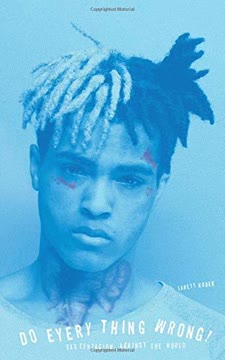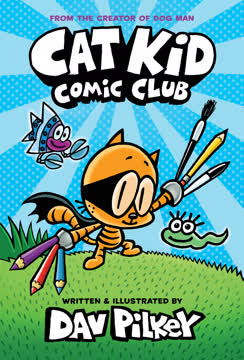Key Takeaways
1. Systemic Trauma Shaped a Life
His father was absent, a casualty of the United States government and its multi-decade War on Drugs, which was, and is, a systemic conspiracy to ruin the lives of several generations of Black men.
A difficult start. Jahseh Onfroy, born in Broward County, Florida, in 1998, endured a traumatic childhood marked by neglect, instability, and violence. His young mother, Cleopatra, struggled, and he was shuffled between homes, including a group home, experiencing beatings and expulsions from school.
War on Drugs' impact. A significant factor in his early life was the absence of his father, Dwayne Ricardo Onfroy, who was imprisoned for money laundering and drug charges stemming from a 2008 sting operation. The author argues this was a direct consequence of the Reagan-era War on Drugs, a systemic conspiracy that disproportionately targeted and incarcerated Black men, creating profound social pathologies for their children.
A cycle of disadvantage. Dwayne Onfroy's arrest when Jahseh was ten meant his son lived without a father until he was seventeen. This systemic influence, rather than just a "litany of suffering," fundamentally shaped Jahseh's life, contributing to his early entanglement with the criminal justice system and the constructed behaviors that would define him.
2. The Unfiltered Digital Confessional
Reading the tweets, you come to the realization that this is a person of unusual honesty.
Twitter as self-creation. Jahseh Onfroy began his Twitter account in 2012, at age fourteen, before the idea of XXXTentacion existed. He used the platform as an unfiltered confessional, revealing an unusual degree of honesty, tweeting about law-breaking, his sex life, and even demanding addresses of people he argued with, often leading to physical altercations.
Locked into a persona. This early, raw use of Twitter meant that as he gained fame, he became locked into the persona he created as a teenager. Unlike his peers who could grow and change, his public self was inextricably linked to this unfiltered digital identity, which never seemed to bite him until his pre-fame importance in the criminal justice hierarchy changed.
A public record of chaos. His tweets documented a life of violence, drugs, and sex, often while under house arrest or probation, yet authorities seemed to ignore his social media. This created a unique, fragmented, and often one-sided public record of his adolescence, revealing a person who "won't shut up" and relates "everything in laborious detail."
3. Music Beyond Genre: The Power of Timbre
Timbre is the most important thing. It’s the only thing.
Timbre as the essence. The author argues that XXXTentacion's musical genius lay in his mastery of timbre—the unique quality of his voice and sound that transcended traditional musical categories. Unlike conventional songs defined by melody and harmony, rap, and especially XXXTentacion's work, is almost entirely rhythm and timbre, making it deeply rooted in individual performance.
Genre-bending and innovation. XXXTentacion's music defied easy categorization, blending elements of rap, R&B, post-punk, and even death metal. Songs like "Revenge" showcased a melodic, sung style, while "schizophrenia" featured whispering, guitar-driven vocals, and screaming. His later songs became shorter, designed to "assault you" and leave listeners wanting more, demonstrating his radical approach to song structure.
A unique voice. His voice was described as "beautiful in the same way that Bob Dylan’s voice is beautiful," aching with timbre, like a "wounded animal that stays down." This raw, distinctive sound, combined with his willingness to experiment across genres, made him a "most consequential recording artist of the last decade," proving that he could "murder when he wanted" and always sound like himself.
4. Fame's Paradox: Success vs. Manufactured Morality
Success is the only determinant of morality in America.
Unforeseen chart success. XXXTentacion's song "Look At Me!" unexpectedly climbed the Billboard Hot 100 in early 2017, while he was in jail. This ascent, driven by sheer talent and a rabid fanbase leveraging streaming platforms, created a significant disconnect with the prevailing media narrative that "morality is indistinguishable from success."
Challenging the consensus. His success, despite his controversial past—including the No Jumper interview and domestic abuse allegations—forced a reckoning within the American arts and media. The commentariat, accustomed to linking success with "Good People," struggled to reconcile his undeniable popularity with his "big time sinner" image, leading to increased scrutiny and commentary.
The "Hateful Content" debate. This tension culminated in actions like Spotify's short-lived "Hateful Content" policy, which disproportionately targeted artists like XXXTentacion and R. Kelly, while ignoring others with problematic content. This demonstrated how moral judgments in media were often "bullshit PR moves" and financially motivated, highlighting the hypocrisy of those who "hate being embarrassed" by unexpected success.
5. The Internet as a Brutalizing Force
What happens if your interaction with the world is dominated by an engine of human contempt, designed by the ultra-wealthy to inform you that you are less than garbage?
Raised by the internet. Born in 1998, XXXTentacion grew up alongside the internet, making him a product of its unique, often brutalizing environment. With ample time due to house arrest and expulsion from school, he immersed himself in online culture, shaping his aesthetics and worldview.
A constant stressor. The author posits that the internet, as an "engine of human contempt," became the greatest persistent stressor for his generation. It transformed human communication into "grotesque exploitation," where every thought became "monetizable content" and individuals were constantly told they were "less than garbage."
The wound of the digital age. This constant exposure to negativity and the blurring of reality and fantasy left a profound "wound." His vulnerability, as seen in his Instagram Live video explaining why he shaved his eyebrows ("I don’t want to look like people... I wanna be myself and if that means I have to be ugly to look like myself then I’ll be ugly"), resonated with listeners who felt their own lives brutalized by the digital world.
6. Vulnerability Amidst Pathological Violence
You have to accept that a totally violent dude can also be defined by questions of self-worth.
A complex contradiction. XXXTentacion embodied a profound contradiction: he was capable of extreme violence, often documented publicly, yet also expressed aching vulnerability and struggles with mental illness. The author challenges the societal narrative that a "violent Black man is disallowed the legitimacy of his feelings."
Public displays of pain. His tweets frequently revealed suicidal ideation, self-harm, and professions of emptiness, alongside demands for people to come shoot him. This raw honesty, combined with his documented violent acts (like running into a car at 30 mph during an argument), painted a picture of pathological violence intertwined with deep emotional turmoil.
Resonance with listeners. This complex, often unsettling, blend of aggression and fragility resonated deeply with his audience. His "wound," born from a brutalized adolescence and the internet's influence, mirrored the wounds of his listeners, making him an "antenna of the moment" for a generation grappling with their own purpose and exploitation.
7. The Cycle of Digital Victimization and Exploitation
Your life is the property of others.
Geneva Sativa's story. The author highlights the tragic case of Geneva Sativa, XXXTentacion's ex-girlfriend, whose alleged abuse by him became public content. Her private trauma, including photos of her injuries, was amplified and exploited by the internet and media, turning her life into "monetizable content" for others.
No escape from the digital record. Unlike previous generations who could escape past mistakes, the digital age ensures that "almost nothing goes away." Every "minutia of detail is monetizable content," enriching a transnational class of people who profit from others' transgressions, especially those from working-class backgrounds.
A curse of public exposure. Geneva's experience, from her early life struggles to her relationship with XXXTentacion, his arrest, his subsequent fame while she was making amateur pornography, and her continued public scrutiny after his death, illustrates a "horrible thing to have happen when you’re twenty-two," a "curse on an Egyptian tomb" that will follow her forever.
8. "Do Every Thing Wrong!": A Radical Philosophy
If the whole game is rigged, and your behavior is constructed by invisible social pressures, then there’s only one thing you can do. Do every thing wrong!
Defying the system. The author proposes a radical philosophy: in a rigged system where behavior is constructed by social pressures, the only path to true freedom and success is to "do every thing wrong!" This means defying conventional rules and expectations, especially in the arts.
Wrong vs. asshole. Crucially, the author distinguishes between "doing wrong" and "being an asshole." "Wrong" leads to artistic success by breaking norms (e.g., getting on Billboard with a SoundCloud track). "Being an asshole," however, involves causing personal harm, like dooming a young woman to media exploitation or breaking a girlfriend's heart.
XXXTentacion's embodiment. XXXTentacion implicitly understood "doing wrong" in his artistic approach, creating groundbreaking music that defied industry standards. However, he also embodied "being an asshole" through his violent actions and personal conduct, demonstrating the fine line between radical rebellion and destructive behavior.
9. The Hypocrisy of Media and Morality
People like making money, but they hate being embarrassed.
Selective moral outrage. The author argues that the media's moral outrage, particularly after Trump's election, became a tool to exert agency over arts and culture following political failure. This led to a "reckoning" where artists like XXXTentacion, who were Black, young, and successful despite their controversial pasts, became targets.
Disconnect between media and audience. A significant disconnect exists between media commentators and the public. While the commentariat might champion certain "good" artists or shows, their actual viewership is often low. Conversely, XXXTentacion's success was undeniable, built on a "groundswell of actual support from a mass of people," which the media couldn't ignore.
Profit over principle. The media's selective application of moral judgment, often aligning with financial interests, is highlighted. They would criticize XXXTentacion for alleged domestic abuse but ignore systemic issues or problematic content from more established, "safe" artists. This reveals a system where "morality is indistinguishable from success," but only when that success aligns with the established power structures.
Last updated:
Review Summary
Do Every Thing Wrong! is a controversial book about rapper XXXTentacion that has received mostly positive reviews. Readers praise Kobek's analysis of race, class, and celebrity culture through the lens of XXXTentacion's life. Many find it thought-provoking and well-researched, appreciating Kobek's unique writing style and cultural critique. Some readers note it's more about society than the rapper himself. Critical reviews mention disjointed structure and perceived apologism. Overall, reviewers see it as a complex, satirical examination of modern America and internet culture.
Similar Books
Download PDF
Download EPUB
.epub digital book format is ideal for reading ebooks on phones, tablets, and e-readers.








